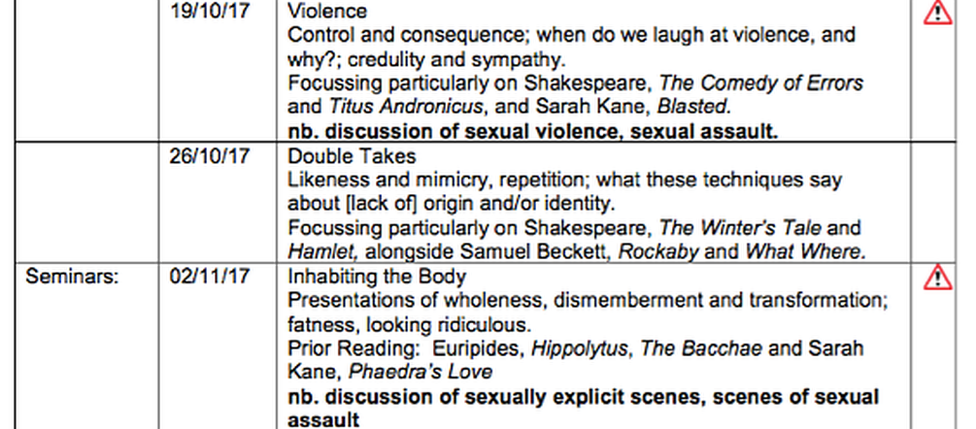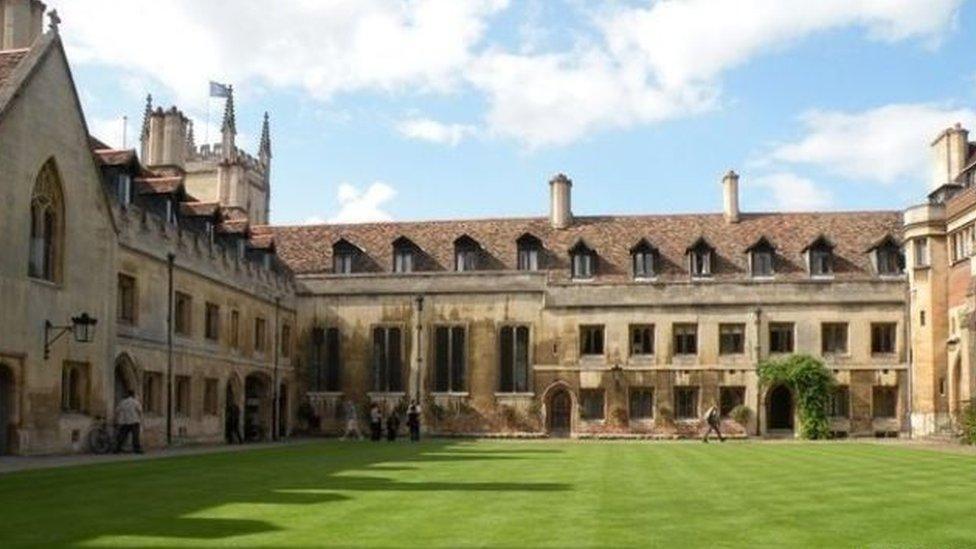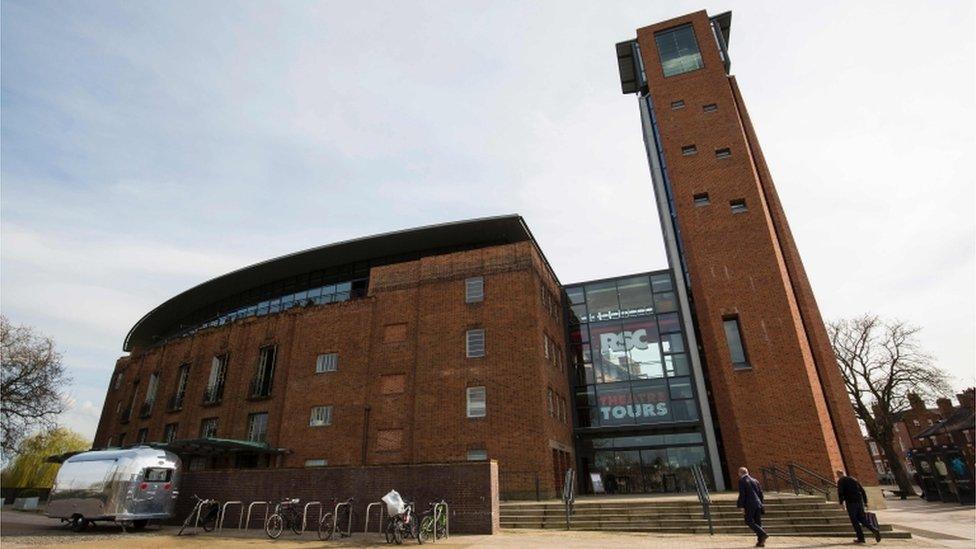Cambridge Uni students get Shakespeare trigger warnings
- Published

Violence in Shakespeare's Titus Andronicus might be "upsetting", students have been warned
Shakespeare contains gore and violence that might "upset" you, Cambridge University students have been warned.
The "trigger warnings" - red triangles with an exclamation mark - appeared on their English lecture timetables.
Lectures including Shakespeare's Titus Andronicus contain "discussion of sexual violence, sexual assault", the BBC's Newsnight programme has learned.
The university said the warnings were "at the lecturer's own discretion" and "not a faculty-wide policy".
The lecture timetables were issued to this term's students by the university's faculty of English.
"Any session containing material that could be deemed upsetting (and it is not obvious from the title) is now marked with a symbol," they say.

Among those considered "upsetting" is a lecture on "violence" - which includes a discussion of Shakespeare's Titus Andronicus and Sarah Kane's play Blasted.
Alongside the warning symbol, students are told to expect discussion of sexual violence and sexual assault.
Shakespeare's play includes mutilation, murder and violent rape with similar topics, plus torture and genocide covered in Kane's play.

Parts of this term's English lecture timetable for Cambridge students include "upsetting" themes
Also singled out for a warning is a lecture on "inhabiting the body" which includes a discussion on dismemberment.
Included in this is the Greek playwright Euripides' The Bacchae, which features scenes of women tearing cattle and humans to pieces.

Cambridge University said it was at the lecturer's own discretion to flag up upsetting material
'Sensitive material'
Asked about the warnings, one Cambridge academic who did not wish to be named, said their "duty as educators was to prepare students for the world not protect them for three years".
Prof Dennis Hayes from Derby University's education faculty said: "Once you get a few trigger warnings, lecturers will stop presenting anything that is controversial... gradually, there is no critical discussion".
Cambridge University said the English faculty "does not have a policy on trigger warnings", but added: "Some lecturers indicate that some sensitive material will be covered in a lecture... this is entirely at the lecturer's own discretion and is in no way indicative of a faculty-wide policy."
- Published10 September 2017

- Published1 September 2017

- Published5 July 2017

- Published24 February 2016
